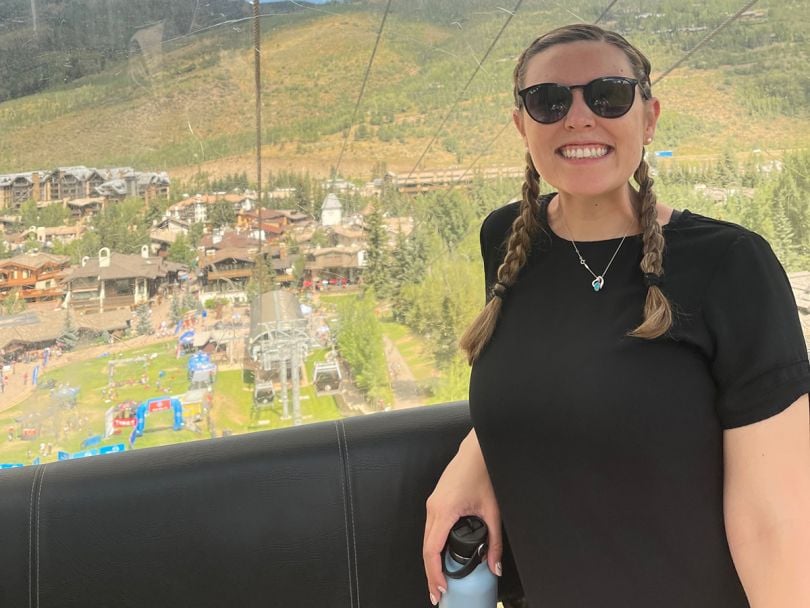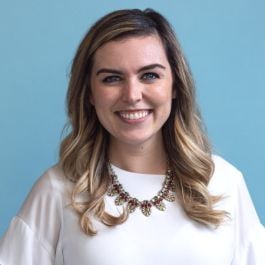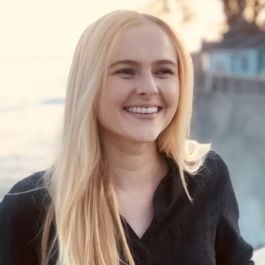A decade ago, flexible time off was a novel concept introduced with the promise of putting employees in control of their work-life balance. It conjures images of endless beach vacations and hammock naps in exotic destinations, free from the tyranny of the Slack notification. Today, 50 percent of U.S. workers would prefer flexible PTO to earning a higher salary, according to a survey by the Harris Poll, yet it’s only available to nine percent of workers.
Flexible PTO is a rare and desirable benefit, but it’s also gained an ugly stigma.
Ironically, data shows that employees with flexible PTO often take less vacation days than their counterparts with fixed time off. Due to this, flexible PTO has gained a reputation as a dangling carrot for recruitment. A false promise. The illusion of work-life balance.
That’s not the case at Affirm.
Affirm is a remote-first fintech offering a buy now, pay later model to e-commerce consumers. It’s also got a serious people-first culture to back up its flexible PTO policy. Work-life balance is more than just lip service.
To get a sense of what this means in action, Built In talked to three Affirm employees about the work-life balance tools at their disposal, the attitudes toward time off and the memories they’ve made as a result.
WORK-LIFE BALANCE AT AFFIRM
- Flexible Time Off: Flexible time off propped up by the culture
- Away Days: Monthly companywide days off
- Life Happens Leave: Days set aside for when life throws a curveball
- Health Days: Days to recover from illness or handle health

Shortly after she was hired in February 2022, Maria Varon anxiously practiced the speech she’d give her manager for her first time off request.
Her toddler had been given ring bearer duties for an in-law’s wedding, but Varon wasn’t sure how the interaction would pan out. Varon put together a contingency plan to make it go smoothly: minimize the actual time off and log on while she was traveling. “When I booked the vacation, I went into a meeting with my manager prepared to sell her this idea that it would only be like three days off,” she said. This anxious mental rehearsal was a force of habit from past jobs.
It was all for naught.
The request was approved, and her manager told her not to work on vacation. “She wanted me to take the time off and really disconnect,” said Varon. “It was so easy. I’ve never had an experience like that. It wasn’t even a point of discussion.”
Varon noticed that work-life balance was baked into the culture from day one. Coworkers and leaders talked openly about PTO even with her, a newbie, which cemented the idea that it was okay to use it. But she still had to see it to believe it.
Thanks to that dedication to work-life balance, Varon was able to be truly present for that beautiful wedding, watching her tiny son totter down the aisle. “He had little suspenders and a bow tie. There was a pack of ring bearers, my son was the youngest. Seeing them hold hands and walk down the aisle melted my heart,” she said. “If I had to work in the morning and check my emails it would have ruined the whole day, but I didn’t have to worry about any of that.”
At the end of August, Varon will be visiting her birthplace in Nicaragua for the first time since before the Covid-19 pandemic. Her family was skeptical when planning the trip since she was so new to the company, but Varon knew it wouldn’t be an issue. Despite juggling significant projects related to a recent acquisition, no one on Varon’s team mentioned work when she announced the trip. “The main question I got asked was, ‘Can we see pictures?’”
Here’s what else she had to say:
On how work-life balance supports success: If I don’t have time for myself or family, I’m not able to focus on my work. I am someone who really needs time away for my mental health, to decompress from situations and separate myself from big projects. A long weekend can help with my focus, so I can get recentered and come back refreshed and perform better. Things need to get done. If I’m burned out, I go slower and that is not what I want.
On what attracted her to Affirm: I met amazing people during the panel interview. Everybody was positive and wanted to intellectually challenge me. I saw a growth opportunity, and they were extremely transparent about everything: pay grades, PTO and benefits. It was all available online. I actually had a similar job offer when I got this one, so it just came down to the vibes. The pay was the same but the culture and benefits sold me on Affirm.
“Things need to get done. If I’m burned out, I go slower and that is not what I want.”
LIFE HAPPENS

Chantal Kanzaki took PTO to get married to the same person, twice. No problem. First, there was the mini pandemic wedding on a balcony overlooking Lake Tahoe in 2020. The following year, she got to have the “real” wedding of her dreams in San Luis Obispo, Calif., with all of her friends and family.
“Affirm could have said, ‘What’s the big deal, you’re already married?’ But it was our chance to really celebrate with all of our friends and family after years of thinking about it,” she said. “I was given space away from work to enjoy it, even though we’d done it before.”
In fact, Kanzaki has hit a major life milestone every year since starting at Affirm in February 2018. In addition to the two weddings, she bought a house and moved from California to Colorado. Now, she has a little girl on the way. Time off for these major milestones has never been an issue, despite the massive growth the company has undergone in the years she’s been with Affirm.
Affirm had 300 people when she joined. Now it’s at 3,000. The fintech company went public. It made its first major acquisition by purchasing Canadian fintech Paybright. Oh, and there was a pandemic. No matter what was going on, work-life balance was always a priority.
“If someone hasn’t taken time off in a while, leadership will tell everyone to start figuring it out,” she said.
When she welcomes her first child in October, Kanzaki is getting ready to take advantage of a generous parental leave policy, and a flexible return to work program to ramp up when she’s ready to come back. “We have a glorious 18-week parental leave, which I will be using. No one will be talking to me, I won’t be thinking about work,” she said.
Here’s what else she had to say:
On PTO and parental leave: I’ll never have this experience of having my first child again. It’s such a precious moment. If my employer didn’t understand that I don’t think I would be able to work there. Being a pregnant human, I’ve got lots of doctors appointments and days where I feel terrible. I have been so supported through this, especially when I was super sick and not fully there during my first trimester. I have flexibility with my schedule. My manager never batted an eye. I’ve even been able to take days off to celebrate this little nugget, like with my baby shower.
On what makes it feel okay to request time off: It seems silly to say, but the flexible PTO is truly flexible. There is no stigma. Some places sing to the heavens about having unlimited time off but then they don’t use it. People here do use it, openly, including leadership. They are transparent about it, which really helps. ‘Time off’ is not a dirty word. It’s okay to go to Mexico for two weeks to lay in the sand. It’s okay to say you are burned out after a major project and take time for yourself to get in the right headspace and reset. My managers understand that I’m a person first and that life happens.
“I have flexibility with my schedule. My manager never batted an eye.”
GET AWAY

When Caroline Way went to Italy for two weeks in 2022, she did something revolutionary.
She left her work laptop at home.
“It allowed me to unplug and focus on a special moment,” she said. “A lot of people might go on vacation and bring their laptop because they are nervous, but at Affirm I don’t feel that way at all.”
That special trip was for her honeymoon. After taking a week off for her wedding — which five Affirm coworkers attended — the newlyweds escaped to Italy for a blissful two-week adventure.
They sailed the sparkling blue water around the isle of Capri. They hiked the Path of the Gods on the Amalfi Coast and explored Pompeii. There was a wine tasting bike tour through Tuscany, and a food walking tour through Bologna. Not once was there worry about work.
At most employers, embarking on a three-week hiatus would require advanced vacation calculus. That’s not the case with Affirm.
“I didn’t have to worry about saving up days off or not getting paid,” said Way. “I didn’t have to think about not taking time off earlier in the year because I was getting married later, or that I had to save enough days for the honeymoon.”
Here’s what else she had to say:
On what makes it feel okay to request time off: This team is very supportive of each other, both professionally and personally. I have a lot of confidence in my coworkers, peers and my manager. I know that they have my back and support me. When I get back, they’ll catch me up. Life isn’t about work, it’s about living. Affirm recognizes that.
On what keeps her at Affirm: I joined Affirm because of the mission, the product, the people and the opportunity for growth. I wanted to work for a company that was making a tangible impact in people’s lives. The company is constantly evolving and growing. There are an unlimited number of challenges to work on and problems to solve. My coworkers are incredible. They are smart and passionate. They care a lot about each other and they like to have fun. I have grown really close to my coworkers, and they are some of my closest friends.
“Life isn’t about work, it’s about living. Affirm recognizes that.”
WHAT ELSE MAKES A PEOPLE-FIRST CULTURE?
Affirm Wants You To Take Your PTO. Really.









